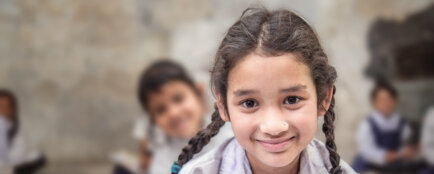What is an asylum
An asylum house is a social prevention service that provides temporary accommodation and support services to people who find themselves in an unfavourable social situation. These shelters are designed to offer a safe environment where people in a bad situation can seek refuge and the help they need to resume a normal life.
Tip for article
Tip: Did you get fired at work? We’ll make sure you get everything you’re entitled to. We can help you defend yourself against your employer. We will offer a solution in as little as two days, nationwide.
Shelters for mothers with children are the most common type of shelter. They provide accommodation and support to mothers who are in a crisis situation, often caused by an unsuitable home environment and loss of housing. Another large group are family shelters, which provide accommodation and support for whole families in crisis situations.
What types of people you might meet in a shelter for mothers with children or families
Women with children and families who end up in shelters come from different backgrounds and face different challenges that lead them to seek this help. However, common reasons include:
- Domestic violence: Many women seek refuge in a shelter for mothers with children because of domestic violence. They often flee dangerous situations in their homes to protect themselves and their children.
- Economic hardship: Financial instability, debt or job loss can make it impossible for single mothers or families to afford normal housing.
- Substance abuse and mental health problems: Clients may include women or families with substance abuse or mental health problems that prevent them from functioning normally. This is also why there are shelters for mothers and families that provide services for people suffering from these problems.
- Family breakdown: Family disputes, including those with extended family members, can sometimes lead to the loss of housing for women and their children or entire families.
- Young mothers: Teenage mothers and young families without stable backgrounds also make up a significant proportion of shelter clients.
Are you solving a similar problem?
Solutions Tailored for You
Our team of experienced attorneys will help you solve any legal issue. Within 24 hours we’ll evaluate your situation and suggest a step-by-step solution, including all costs. The price for this proposal is only CZK 690, and this is refunded to you when you order service from us.
I Need help
- When you order, you know what you will get and how much it will cost.
- We handle everything online or in person at one of our 6 offices.
- We handle 8 out of 10 requests within 2 working days.
- We have specialists for every field of law.
How the shelter works
The basic services that every shelter must provide are defined by the Social Services Act. These services include:
- Provision of meals or assistance in providing meals: this means that the shelter is obliged to provide meals to its clients (e.g. meals in the dining room) or facilities for independent food preparation (e.g. a shared kitchen).
- Provision of accommodation: Accommodation is usually provided for a maximum period of one year. In addition, the shelter is obliged to ensure that hygiene facilities are available and to create conditions for cleaning.
- Assistance with exercising rights, legitimate interests and personal affairs: This service means that the shelter for mothers with children is obliged to help its clients with everyday affairs (e.g. dealing with the authorities). In addition, there is a duty to help with contact with the client’s family and other activities to reintegrate the client into society.
In addition to these basic services, the shelter may also provide additional or optional services. The most common services are:
- Counselling and support: Shelters for mothers with children often offer counseling services, support groups, and therapy to help their clients cope with the trauma they have experienced and develop strategies for healing and recovery.
- Legal assistance: Many shelters provide legal support and information to help clients navigate the legal system and deal with issues such as foreclosures, divorce, and custody.
- Education: Some shelters offer programs that help clients gain education and job skills and enable them to become financially independent.
- Childcare: Some shelters may provide childcare and tutoring.
For whom are shelters for mothers with children or families
A shelter for mothers with children is for mothers and women aged 18 and over who are caring for their own children or wards, pregnant women or families with minor children. Common conditions for admission include the ability to take care of oneself in terms of normal service and movement (e.g. people with severe physical or mental disabilities cannot use this service). A family shelter usually has the same rules, but accepts whole families in need, including fathers.
How much does accommodation in an asylum cost
The Social Services Act sets a maximum price for shelter services. Specifically, it is CZK 170 per day for a full-day meal consisting of at least three meals and CZK 75 for lunch. For accommodation, it is CZK 130 per day for an independent adult or, in the case of a family with children, CZK 100 per adult and CZK 70 per child.
Who runs the shelters
Asylums can be set up by both natural and legal persons. In practice, these are most often various associations, non-profit organisations or religious legal entities. In the Czech Republic, the most well-known founders of shelters are the non-profit humanitarian organisation of the Catholic Church , Charita České republiky, and the Christian charity organisation Armáda spásy (Salvation Army).
Tip for article
Tip: If you are looking for a shelter in your area, we recommend the map on asylum.cz.
What are the rules of the asylum
There are no universal rules for all shelters, so it depends from house to house. However, refuges for women with children and families usually have rules and guidelines in place to ensure the safety, security and well-being of all residents. The most common rules include:
- Reporting and curfews: shelter residents are often required to report in and out, and curfews after a certain hour (e.g., after 10 p.m.) are also a common practice.
- Alcohol and drug prohibition: Alcohol and drug use, including smoking (except in designated areas), is prohibited in the asylum premises.
- Participation in the activities of the shelter is compulsory: Clients are often required to attend various counselling or support groups.
- Cleanliness: Residents are expected to clean up after themselves and help keep common and living areas clean.
- Limiting Visitation: Shelters often restrict visitors. In many cases, visits may be prohibited altogether or allowed only with prior approval.
- Participation in the day-to-day running of the home: Clients may be required to participate in routine household activities such as meal preparation or cleaning.
How to get to the shelter
The conditions for staying in a shelter for mothers with children or families vary from house to house, so it is best to find out specific information directly from the desired shelter. Usually, however, you must meet the following conditions and provide the following documents:
- You must be part of the target group. In the case of shelters for mothers with children, you must be a woman seeking help together with her child (there are other types of shelters for fathers with children).
- You must present a valid personal document – ID card, driving licence or passport. In the case of non-EU foreigners, you will need a residence permit.
- You must apply for accommodation (social services).
- you must provide a doctor’s certificate of fitness to use the social service, stating that you are independent in terms of normal use and movement.
- You must have a verifiable income(parental allowance, salary or perhaps material hardship benefits)
Overcrowding and long waiting times are common problems in shelters. This has currently been exacerbated by rising prices and the war in Ukraine, which has brought with it a large number of refugees in need of assistance. Despite this, it cannot be denied that shelters provide a safe place for those in difficult life situations and represent hope for a new beginning.
Summary
Shelters for mothers with children and families are a key social prevention service that provides temporary accommodation, meals and comprehensive support services to people in crisis situations such as domestic violence, economic hardship or family breakdown. The facilities are designed primarily for women and families with minor children, and accommodation is provided for up to one year at statutory rates. In addition to basic services such as hygiene and assistance with daily living, shelters often offer counselling, legal assistance and educational programmes to help clients overcome difficult living situations and facilitate their reintegration into society. The admission process requires specific criteria to be met and the necessary documents to be presented, ensuring that assistance reaches those who really need it.




